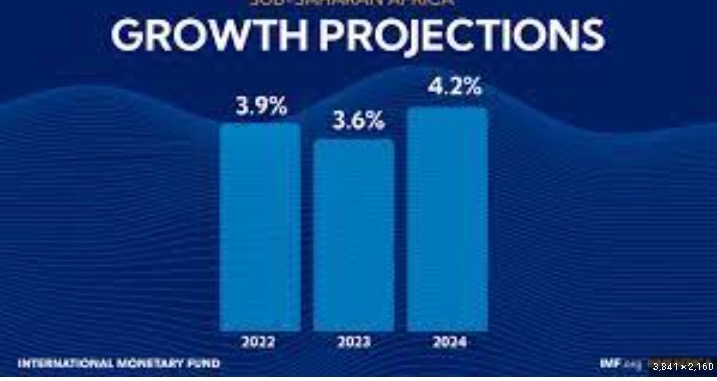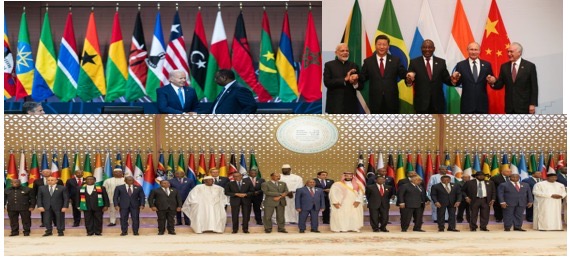Africa is a tale of a people yearning for transformation, a continent poised for an extraordinary journey towards a reimagined destiny.
The winds of change whisper tales of prosperity and progress, beckoning African leaders to seize the mantle of transformation. Beyond the horizon of challenges lies an epoch where dreams transcend limitations, where innovation meets opportunity, and where the collective vision of a resplendent Africa ignites the spirits of millions. It is within this narrative that I choose to take a deep dive into what Nelson Mandela and other pan-Africans have charted for creating a new part of progress and prosperity for the continent. This is not just a must-read for every African leader but a point of continued reference as they attempt to better the fortunes of the people they govern.
Here is the 10-point agenda to rewrite the African story.
- Education and skills development
Education stands as the bedrock of societal transformation. Prioritising quality education means investing in accessible, inclusive, and modern learning environments. From primary education to higher institutions, fostering an environment that encourages curiosity, critical thinking, and innovation is pivotal. Moreover, placing a spotlight on STEM education equips youth with the technical skills necessary to navigate the complex landscape of the modern world. Vocational training programmes tailored to emerging industries nurture a skilled workforce, empowering individuals to contribute meaningfully to the economy and drive innovation.
The words of Nelson Mandela echo profoundly: “Education is the most powerful weapon that you can use to change the world.” This empowerment through education isn’t solely about certificates or degrees; it’s about nurturing individuals to become proactive problem-solvers and future leaders. By equipping the youth with a diverse skill set, encompassing not just academics but also critical life skills and entrepreneurship, African leaders can cultivate a generation ready to take on global challenges. Encouraging mentorship programmes, internships, and partnerships between educational institutions and industries fosters practical knowledge application, preparing the youth to lead the charge in technological advancements and economic transformations.
2. Economic Diversification and Industrialization
The wise words of Aliko Dangote resonate deeply: “African development is not just about commodities; it’s about adding value to the raw materials.” To move forward, diversifying economies away from dependence on raw material exports is pivotal. Encouraging investment in sectors such as manufacturing, technology, and services not only creates employment opportunities but also adds value to the economy. Supporting and nurturing small and medium-sized enterprises (SMEs) forms the backbone of a dynamic, diverse economy. These enterprises contribute significantly to employment generation and innovation, driving economic growth from the grassroots level upwards.
Industrialization and economic diversification intertwine with innovation. Through investment in research and development, embracing technological advancements, and fostering an environment conducive to entrepreneurship, African nations can leapfrog traditional developmental stages. Encouraging the growth of local industries and startups ensures that Africa taps into its vast potential for innovation. Initiatives supporting knowledge transfer and collaboration between local businesses and global counterparts facilitate the exchange of ideas and expertise, propelling African economies towards sustainable and inclusive growth.
3. Enhance Infrastructure Development
Ngozi Okonjo-Iweala’s assertion, “Infrastructure is the backbone of any nation’s development,” holds immense significance in Africa’s developmental narrative. Robust infrastructure networks are indispensable for fostering economic growth and societal progress. Investments in transportation infrastructure, such as roads, railways, ports, and airports, are pivotal for facilitating trade and connectivity across regions. Equally critical is the development of energy infrastructure to meet growing demands, ensuring reliable power supply for industries and households. Embracing advancements in communication and technology infrastructure is essential for integrating remote communities into the digital economy and ensuring equal access to opportunities and information.
Enhanced infrastructure isn’t merely about construction; it’s about building sustainable systems for the future. Embracing eco-friendly practices in infrastructure development minimises environmental impact while maximising long-term benefits. This includes investing in renewable energy sources, implementing smart city initiatives for efficient resource utilisation, and prioritising eco-friendly transportation solutions. By incorporating sustainability into infrastructure projects, African leaders not only propel immediate development but also safeguard resources for future generations.
4.Prioritising Healthcare
Margaret Chan rightly states that “health is a human right.” Access to quality healthcare services should be non-negotiable for all citizens. Investment in healthcare infrastructure, equipped with modern facilities and well-trained healthcare professionals, is essential. Strengthening primary healthcare systems, disease prevention programmes, and expanding healthcare education ensures comprehensive coverage and early intervention, contributing to a healthier society and workforce.
Investing in healthcare extends beyond hospitals; it includes proactive measures for disease prevention and health promotion. Education campaigns focusing on preventive healthcare practices, hygiene, and healthy lifestyles foster a culture of wellness within communities. By prioritising public health education and disease prevention strategies, African leaders can significantly reduce the burden of preventable illnesses, leading to improved overall health outcomes and increased productivity.
5. Implement Good Governance and Eradicate Corruption: Bedrock for Sustainable Development
Ellen Johnson Sirleaf’s words, “The best way to fight corruption is through transparency and accountability,” underline the critical importance of good governance. Strengthening institutions, enacting and enforcing robust laws, and fostering a culture of transparency and accountability among public officials are essential. Upholding ethical practices and ensuring equal access to justice for all citizens establishes the foundation for a fair and just society.
Eradicating corruption isn’t merely a moral imperative; it’s a fundamental step towards sustainable development. Implementing anti-corruption measures, such as transparent public procurement processes and efficient regulatory frameworks, deters corrupt practices. Strengthening judicial systems and law enforcement agencies to prosecute corrupt individuals without bias ensures that no one is above the law, fostering an environment conducive to growth and investment.
6. Fostering Regional Integration and Collaboration: Uniting for a Greater Future
The vision of Hailemariam Desalegn, advocating, “A united Africa will be a stronger partner for the world,” underscores the significance of regional integration. Strengthening ties among African nations through trade agreements, joint infrastructure projects, and shared resources fosters a cohesive regional identity. Collaboration enables the pooling of resources, expertise, and innovation, amplifying the collective economic influence of Africa on the global stage.
Regional unity isn’t just about economic benefits; it’s also about addressing common challenges collectively. Collaboration enables African nations to tackle issues such as security threats, climate change, and pandemics with a unified approach. Sharing knowledge, resources, and expertise strengthens resilience, amplifying Africa’s capacity to confront shared adversities.
7. Promote Sustainable Development and Environmental Conservation
Wangari Maathai’s vision of “harmonious coexistence between human beings and nature” underscores the essence of sustainable development. Embracing sustainable practices across industries, agriculture, and energy sectors mitigates environmental degradation while fostering economic growth. Investing in renewable energy sources, implementing eco-friendly agricultural practices, and preserving natural habitats are essential for safeguarding Africa’s rich biodiversity.
Sustainable development encompasses the responsibility of preserving natural resources for future generations. Prioritising conservation efforts, including wildlife protection, afforestation projects, and efficient waste management, is crucial. By embracing environmental stewardship, African leaders ensure that the continent’s ecological wealth endures, providing lasting benefits to both people and the planet.
8. Support Innovation, Research, and Development
Strive Masiyiwa’s assertion that “the future of Africa is innovation” emphasises the significance of fostering a conducive environment for innovation. Investing in research institutions, nurturing entrepreneurial ecosystems, and supporting indigenous solutions to local challenges drive technological advancements. Encouraging creativity and providing avenues for research and development propel Africa towards the forefront of global innovation.
Innovation isn’t solely about technological advancements; it’s also about finding solutions to local challenges. Supporting startups and initiatives that offer innovative solutions tailored to Africa’s unique needs is paramount. By embracing local ingenuity and empowering homegrown solutions, African leaders foster a culture of innovation that addresses societal issues and contributes to sustainable development.
9. Addressing Social Inequalities and Promoting Inclusive Development
Kofi Annan’s call to “empower people to take control of their own destinies” encapsulates the essence of inclusive development. Implementing policies that address social inequalities and gender disparities fosters a society where every individual has equal access to opportunities. Prioritising education, healthcare, and employment initiatives that uplift marginalised communities is essential to bridging societal divides.
Inclusive development isn’t just about policies; it’s about embracing diversity and ensuring representation across all sectors of society. Empowering women, youth, and minority groups to actively participate in decision-making processes and economic activities fosters a more equitable and vibrant society, unlocking untapped potential and fostering social cohesion.
10. Encouraging Foreign Direct Investment (FDI) and Collaboration
Mo Ibrahim rightly advocates that “Africa needs partnership, not paternalism; collaboration, not charity.” Creating an attractive investment climate through stable governance, conducive policies, and infrastructure development is crucial. Facilitating partnerships with international investors brings expertise, technology, and capital that accelerate economic growth and job creation.
Collaboration with international partners isn’t just about investments; it’s about mutual collaboration for shared prosperity. Through strategic alliances and knowledge exchange, African nations can harness global expertise to address local challenges. Fostering win-win partnerships ensures that foreign investments contribute to sustainable development, benefiting both the continent and its global collaborators.
In pursuit of these strategies, African leaders must exhibit resolute commitment, political will, and steadfast dedication to drive change. Embracing these transformative actions is not only a visionary step towards propelling Africa’s progress but a proof to the collective commitment to shaping a future where prosperity, opportunity, and equity flourish across the continent.
A Call to Action: Forward Together
In the convergence of visionary strategies, Africa charts a transformative course, aiming not merely for potential but as a global influencer driving innovation, sustainable progress, and inclusive growth. It’s a clarion call for leaders to architect policies transcending barriers, forging unity, and uplifting millions. Amidst navigating national complexities, African leaders craft a new narrative resonating resilience, empowerment, and collective success. The journey to 2024 isn’t solely about temporal boundaries but about shaping a legacy reverberating through generations, redefining growth and prosperity paradigms.
This transformative journey for Africa transcends mere milestones; it embodies a collective spirit propelling nations towards a brighter epoch where limitations fade, allowing Africa’s brilliance to shine resiliently. It’s a poignant call to rewrite history, not tethered to struggles but woven with resilience, innovation, and an unwavering resolve to transform destinies. Africa’s story, woven with threads of hope and determination, promises a new dawn where aspirations soar boundlessly, and the spirit of progress reigns supreme against today’s challenges.


